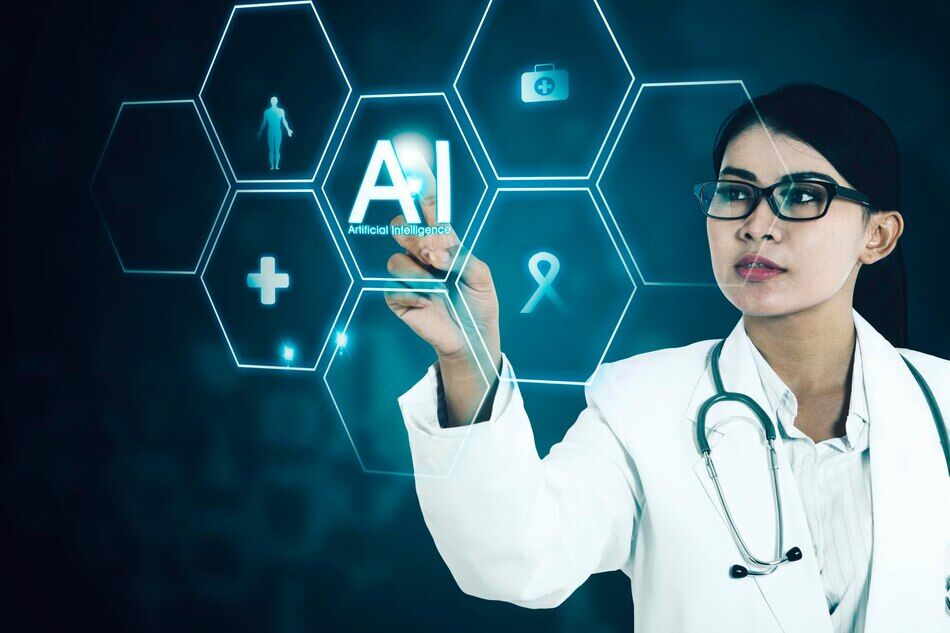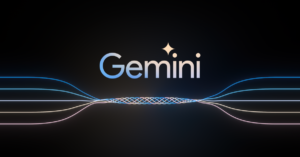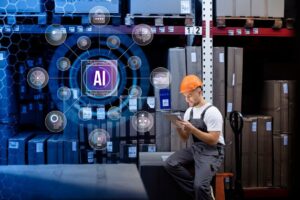Artificial intelligence AI is transforming healthcare in today’s fast changing technology. AI alters healthcare and patient care from diagnostics to individualized treatment plans. Diagnostics, predictive analytics and precision medicine are areas where AI is making considerable progress in healthcare.
Diagnostics: Redefining Accuracy and Efficiency
Diagnostics are where AI is changing healthcare most. Complex medical diagnoses have traditionally been time consuming and error prone depending significantly on healthcare experts. AI powered diagnostic tools are improving speed and accuracy.
AI systems can find patterns and problems in imaging scans, genetic data and patient records that humans cannot. In radiology AI algorithms can accurately evaluate medical pictures like X rays, MRIs and CT scans detecting early cancer and cardiovascular and neurological illnesses.
AI powered diagnostic technologies may help eliminate healthcare inequities by offering expert diagnoses in poor areas with few specialists. By democratizing high quality diagnostic services AI might improve healthcare outcomes and save lives worldwide.
Predictive Analytics: Anticipating and Preventing Disease
Another healthcare area where AI is making progress is predictive analytics. AI can detect at-risk patients and prevent disease development by analyzing patient data including electronic health records, wearable device data and social determinants of health using machine learning algorithms.
AI powered predictive analytics can detect diabetics and hypertensives in danger of heart attacks and strokes. Doctors might prescribe lifestyle or pharmaceutical changes to reduce these risks and enhance patient outcomes.
Healthcare firms may maximize resource allocation and operational efficiency using AI driven predictive analytics. AI helps healthcare practitioners distribute resources, minimize wait times and increase patient satisfaction by anticipating patient demand, predicting healthcare use trends and detecting care delivery bottlenecks.
Precision Medicine: Tailoring Treatment to The Individual
AI is also advancing precision medicine which tailors treatments to particular patients. By evaluating genetic biomarker and clinical trial data AI can discover the best therapy choices for each patient improving results and lowering healthcare expenditures.
AI powered algorithms can examine genomic data to discover disease related genetic alterations allowing doctors to prescribe more effective tailored medications. This tailored therapy improves patient outcomes and avoids adverse medication responses and unneeded treatments.
AI driven precision medicine may uncover new drug targets and predict patient reactions to new drugs speeding up drug development. Using AI to examine large datasets and model complicated biological processes researchers can speed up drug development and bring new medicines to market.
Remote Patient Monitoring: Enhancing Care
AI transforms remote patient monitoring diagnostics, predictive analytics and precision medicine. Healthcare practitioners have traditionally monitored patients’ health and illness development with in person visits. Wearable gadgets and IoT technologies allow AI powered remote monitoring systems to continuously monitor patients’ vital signs and health data from home.
Healthcare practitioners may remotely monitor patients’ heart rate, blood pressure, glucose levels and activity levels to assess their health and spot possible health concerns. AI systems can examine wearable device data to discover abnormalities and notify healthcare practitioners of potential problems.
Remote patient monitoring empowers people to manage their health, improving engagement and treatment adherence. Remote monitoring technologies may assist patients in making health choices and following lifestyle changes and drug regimens by delivering real time data and individualized feedback.
Remote patient monitoring may cut healthcare expenditures and improve outcomes by allowing early intervention and minimizing hospital readmissions. Early detection of health problems enables healthcare practitioners to save expensive emergency department visits and hospitalizations.
AI powered remote patient monitoring revolutionizes healthcare by enabling real time health monitoring improving patient engagement and treatment adherence and reducing healthcare costs by facilitating early intervention and preventing complications.
Natural Language Processing: Unstructured Data
AI also transforms healthcare into natural language processing NLP which analyzes unstructured textual data including clinical notes, medical literature and patient narratives. Healthcare providers are challenged to derive relevant insights from the massive volume of unstructured medical data collected daily. AI powered NLP technologies are changing how healthcare companies collect, analyze and use unstructured data to enhance patient care and results.
AI powered NLP systems can use machine learning algorithms to extract meaningful information, detect patterns and provide actionable insights from massive amounts of unstructured text data. NLP algorithms can recognize symptom diagnosis and treatment plans in clinical notes helping healthcare practitioners make better clinical judgments faster.
Healthcare professionals may use AI powered NLP technologies to search and evaluate enormous medical literature and research papers improving information retrieval and knowledge discovery. NLP technologies also assist healthcare professionals in keeping current and making evidence-based treatment choices by automatically summarizing and classifying articles by subject or medical condition.
Healthcare practitioners diagnose, anticipate and prescribe tailored treatment strategies using patient data and medical literature. NLP solutions which combine clinical experience with AI driven insights may improve diagnosis accuracy, medical mistakes and patient outcomes.
Healthcare Robotics: Automating Routine Tasks and Patient Care
AI is also changing healthcare robotics by automating mundane chores and improving patient care. AI powered robots are employed in healthcare for patient monitoring surgery and rehabilitation.
Healthcare robots perform monotonous time-consuming chores freeing up healthcare personnel to concentrate on more complicated and valuable jobs. Robots using AI powered vision systems can provide surgeons with real time imaging and navigation assistance during minimally invasive operations enhancing surgical precision and lowering complications.
Healthcare robots can help disabled patients with feeding, washing and movement. Robots may save healthcare workers time and money by doing these regular chores enabling them to offer more customized and attentive treatment.
AI powered healthcare robots can monitor patients’ health and identify vital signs and symptoms using sensor and medical device data. By tracking patients remotely and sending real time warnings to avoid falls and medication mistakes healthcare robots may improve patient safety and results.
AI powered healthcare robots automate mundane chores improve patient care and improve patient safety and results. Robotic technology can alter healthcare delivery and enhance patient care.
Conclusion
AI in healthcare has transformed diagnostics, predictive analytics, precision medicine, remote patient monitoring, natural language processing and healthcare robots. These advances boost patient outcomes, operational efficiency and medical innovation. As AI technology advances and becomes increasingly integrated into healthcare delivery it has the potential to change the sector and improve patient care globally.



